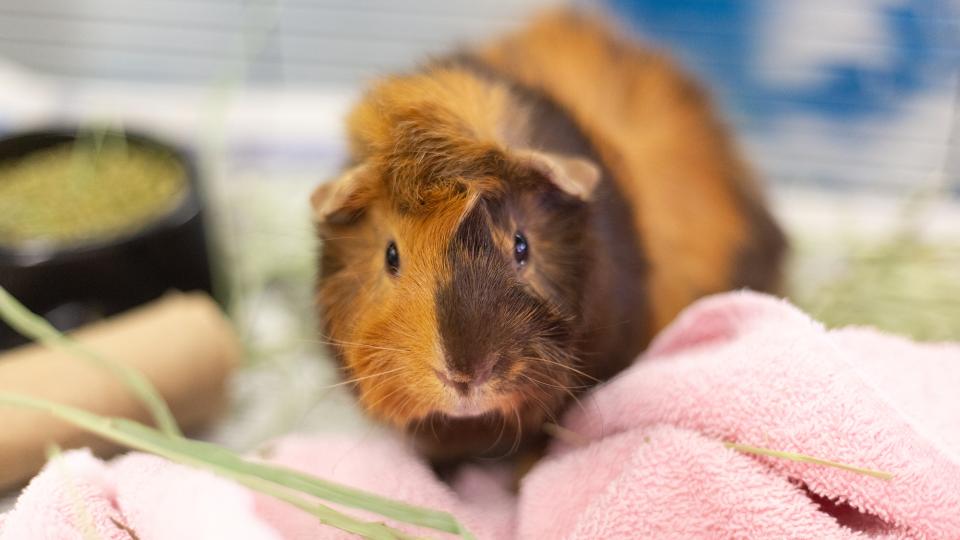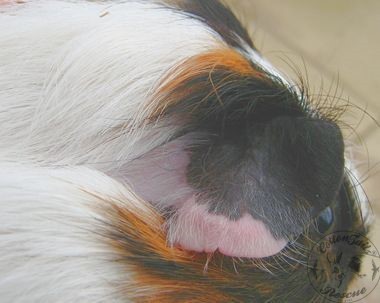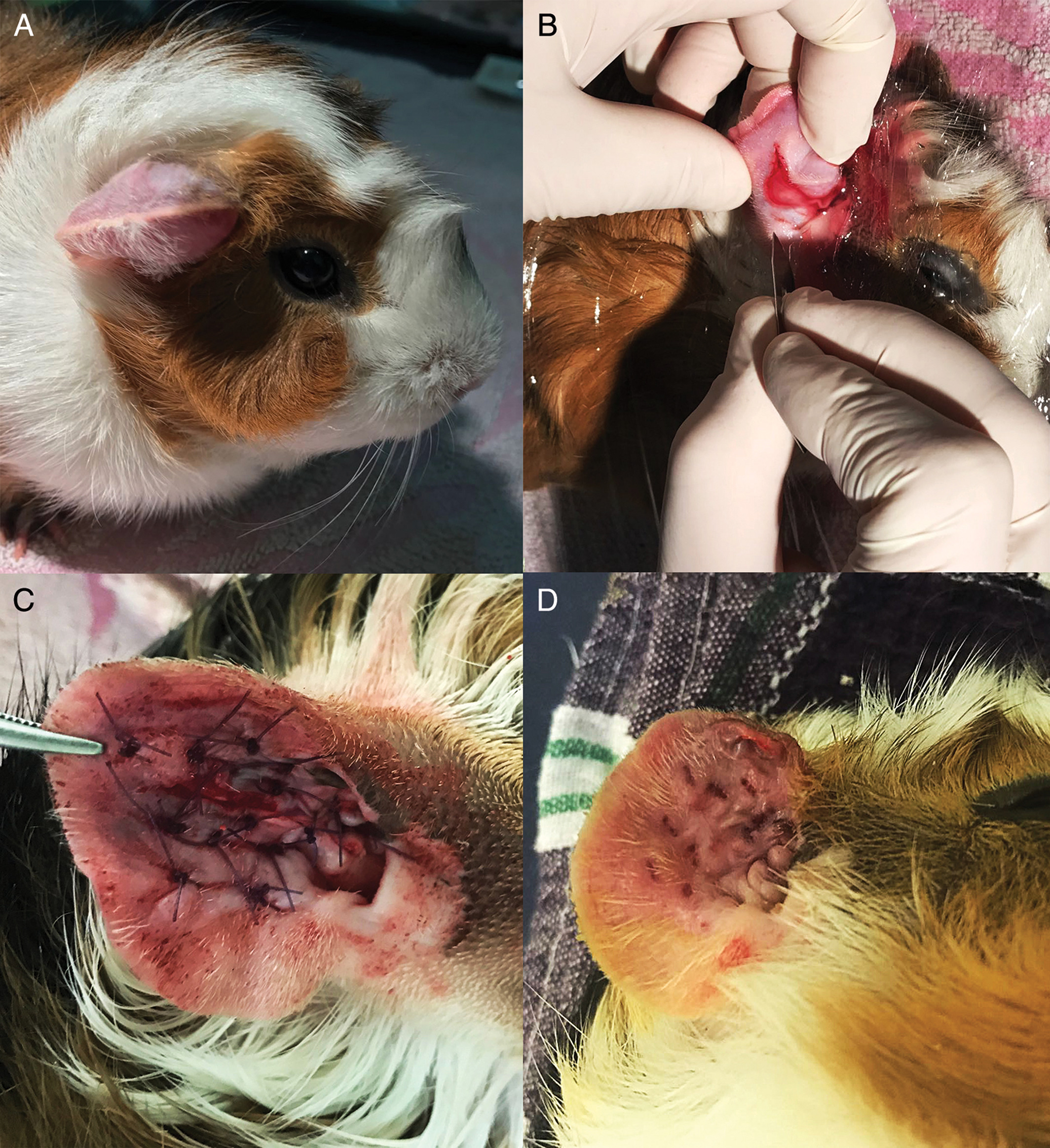Guinea pigs, those lovable and often playful creatures, are susceptible to various health concerns, including ear infections. Although not as common as respiratory infections, ear infections can cause considerable pain and discomfort for your guinea pig.
Recognizing the symptoms, understanding the causes, and knowing how to treat these infections are essential for maintaining your guinea pig’s health and comfort.
READ MORE:
Space Requirements for Guinea Pigs: A Complete Guide
The Hairless Guinea Pig: A Unique and Charming Breed
The Sounds of Guinea Pigs: A Complete Guide
The Squeak of Concern: Understanding Guinea Pig Wheezing
Contents
- 1 Identifying the Signs of an Ear Infection in Guinea Pigs
- 2 Causes of Ear Infections in Guinea Pigs
- 3 Treating Ear Infections in Guinea Pigs: Veterinary Care
- 4 Home Remedies for Guinea Pig Ear Infections: When to Use and When to Avoid
- 5 Preventing Ear Infections in Guinea Pigs: Keeping Their Ears Healthy
- 6 Conclusion
Identifying the Signs of an Ear Infection in Guinea Pigs

As guinea pig owners, it is crucial to recognize the early signs of an ear infection. By noticing these symptoms early, you can take prompt action to alleviate your pet’s discomfort and avoid further complications. Here are some common signs of an ear infection in guinea pigs:
Head Shaking and Tilting
Excessive head shaking and tilting are common indicators of an ear infection in guinea pigs. You may notice that your guinea pig is shaking its head more than usual, accompanied by a slight tilt. This behavior is often a result of the irritation caused by an infection in the ear canal. If you observe this behavior, it is best to consult a veterinarian promptly.
Ear Discharge
Another telltale sign of an ear infection is discharge from the ear. The discharge can range from brown to yellow, or even blood-tinged. In some cases, the discharge may become thick and crusty, signaling a more severe infection. It is important to regularly check your guinea pig’s ears for any unusual discharge and address it immediately.
Loss of Balance
Infections can affect the inner ear, causing balance problems and head tilts. If you notice your guinea pig struggling to walk or keep its balance, it could be due to an ear infection. In more severe cases, the head tilt may worsen, causing difficulty eating, drinking, and moving. Left untreated, this can lead to further health complications.
Causes of Ear Infections in Guinea Pigs
Having identified the signs of ear infections, let’s take a closer look at the potential causes. Ear infections, also known as otitis externa, occur when the ear canal becomes inflamed and infected. Various factors can contribute to these infections, including bacteria, fungi, mites, parasites, and even allergies. Here’s a more detailed breakdown:
Bacterial Infections
Bacterial infections are one of the most frequent causes of ear infections in guinea pigs. These infections can result from both gram-positive and gram-negative bacteria, which are commonly found in the environment. One of the most common bacteria causing ear infections is Pseudomonas aeruginosa, which typically affects the skin.
Fungal Infections
Fungal infections are another major cause of ear infections in guinea pigs. These infections are typically caused by fungi like Aspergillus niger or Aspergillus fumigatus. Guinea pigs may come into contact with these fungi through contaminated bedding, hay, or food. Fungal infections are particularly common in humid environments.
Parasitic Infections
Ear mites, tiny parasites that live in the ear canal, can also cause ear infections. These parasites cause irritation and inflammation, and they can spread quickly between guinea pigs. If one guinea pig is diagnosed with an ear infection caused by ear mites, all guinea pigs in the household should be treated.
Allergies
Like humans, guinea pigs can develop allergies, which can lead to ear infections. Allergies may be triggered by certain foods, bedding materials, or environmental allergens such as dust or pollen. If your guinea pig experiences an allergic reaction, it can cause inflammation in the ear canal, making them more vulnerable to infections.
Treating Ear Infections in Guinea Pigs: Veterinary Care

If you suspect that your guinea pig has an ear infection, it is important to take them to a veterinarian for proper diagnosis and treatment. The vet will perform a thorough physical exam to determine the cause of the infection and provide the appropriate treatment. Here are the common treatments:
Antibiotics
For bacterial infections, antibiotics are commonly prescribed. These medications can come in oral form or as ear drops. Depending on the infection’s severity, the vet may also recommend cleaning the ear canal to remove any discharge or debris.
Antifungal Treatment
If the infection is fungal, the veterinarian will prescribe antifungal medication. These medications are typically given orally and may require several weeks of treatment. In severe cases, the vet may also recommend cleaning the ear canal and applying antifungal drops directly to the ear.
Treatment for Parasites
For infections caused by ear mites, specific medications to target the parasites will be prescribed. These treatments can be ear drops, oral medication, or injections. It is important to follow the veterinarian’s instructions carefully, and all guinea pigs in the household should be treated if one is diagnosed with ear mites.
Home Remedies for Guinea Pig Ear Infections: When to Use and When to Avoid

While veterinary care is always the best option, there are some home remedies that can provide temporary relief from your guinea pig’s ear infection. However, these should never replace professional medical treatment. They are meant only as a stopgap measure until you can see a vet.
Warm Compress
A warm compress can help ease some of the discomfort caused by an ear infection. Soak a clean cloth in warm water and gently hold it against the affected ear for a few minutes. This will help soothe irritation and loosen any discharge or debris in the ear canal.
Olive Oil
Olive oil has natural antimicrobial properties and may help with bacterial or fungal infections. You can apply a few drops of olive oil to a cotton ball and gently wipe the inside of your guinea pig’s ear. Be careful not to insert anything into the ear canal, as this could cause injury.
Vitamin C
Vitamin C is essential for a guinea pig’s overall health and can help strengthen their immune system. You can give your guinea pig vitamin C supplements or provide them with foods rich in the vitamin, such as bell peppers, kale, and strawberries. A stronger immune system can help fight off infections and reduce the risk of future ones.
Preventing Ear Infections in Guinea Pigs: Keeping Their Ears Healthy
As the saying goes, “prevention is better than cure.” Taking proactive steps to maintain your guinea pig’s ear health can significantly reduce the risk of ear infections. Here are some helpful tips:
Regular Cleaning and Maintenance
Keep your guinea pig’s ears clean and free from dirt or wax buildup. Check their ears regularly and gently wipe the outer ear with a damp cloth. However, never insert anything into the ear canal, as this can cause harm.
Proper Nutrition
A balanced diet is crucial for maintaining your guinea pig’s health, including their ear health. Ensure they have access to plenty of hay, fresh vegetables, and a small amount of pellets. Avoid feeding them sugary or processed foods, as these can weaken their immune system and make them more prone to infections.
Avoiding Allergens
If you know that your guinea pig is allergic to certain foods or materials, be sure to avoid them. Also, regularly clean their living environment to eliminate allergens like dust or mold, which can contribute to ear infections.
Conclusion
In conclusion, ear infections are a relatively common problem for guinea pigs, and they can cause significant discomfort. It’s essential for pet owners to recognize the signs and understand the causes of ear infections to ensure timely treatment and prevention. If you suspect your guinea pig has an ear infection, seek veterinary care right away. With appropriate treatment and preventive measures, you can keep your guinea pig healthy and comfortable.
